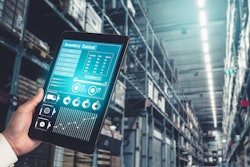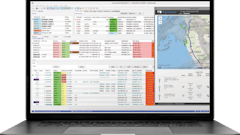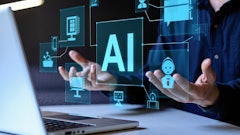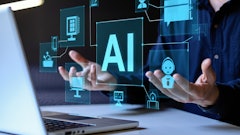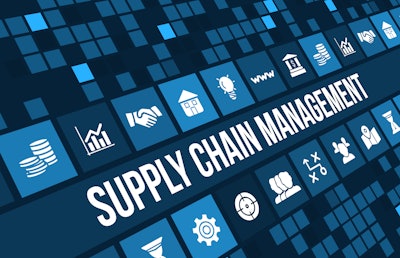
During COVID-19, companies got serious about digitizing their supply chains. During quarantine, distributors suddenly needed to switch from their catering business to their retail business. They recognized their gap in supply chain analytics and decided to invest in digital tools and analytics.
The focus on supply chain analytics increased during more supply chain challenges including the Suez Canal blockage in 2021 and the West Coast port strikes in 2023. With each obstacle, companies continued to invest in advanced analytics.
Today, the ability to provide value to customers rests on a level of global connectivity not seen before. New AI capabilities are hitting the market fast, making supply chains prime for meaningful change. Big retailers use AI to enhance demand forecasting and streamline inventory management. Automotive companies employ AI to optimize logistics and production processes, including predicting parts demand. CPG businesses leverage AI for supply chain resilience.
To achieve this level of digital advancement, these companies needed more than just technology investments. They need the vision to build strong AI foundations and streamlined processes, the governance to manage a potentially limitless horizon of new ideas, and a board that understands that the AI world will be different.
They also need to hire new skills. But what skills are required to leverage AI for supply chain?
At the heart of AI transformation in supply chain are data scientists, professionals who use systems thinking and pattern recognition to extract knowledge and insights from data. Data scientists develop predictive models for demand forecasting by analyzing historical sales data. They contribute to inventory optimization by using advanced algorithms to determine optimal inventory levels, and they analyze transportation data to optimize delivery routes, reduce shipping costs, and improve delivery times.
Supplier management is another area where data scientists add value. By evaluating supplier performance and risks through data analysis, businesses can make informed decisions about supplier selection and management. Data scientists also manage the risks from natural disasters or geopolitical events by analyzing data from multiple sources to ensure resilience.
However, data scientists cannot drive AI-driven supply chain change without supply chain and procurement process owners who know that AI is only as good as the process it automates. AI will do very little for fragmented processes.
Companies also need people who can take the best AI use cases. ideally sourced from all over the company, to identify true investment and return opportunities. But who are these “use case generators” who can develop an engine for great new ideas?
They come in various roles but are increasingly titled “product managers” who can shepherd an idea from ideation to production, know enough about tech, supply chain, and the culture of the company to lead a cross-functional team. Cross-functional leadership, product management, and the ability to drive AI adoption are new skills for many businesses but critical to AI supply chain impact.
The need to upskill in process expertise, data science, and product management comes at a time of great uncertainty in the future of the supply chain workforce. How are companies navigating their future staffing plans?
This question is a major challenge for most senior executives with little clarity in sight. In engineering, AI might reduce the number of people needed to produce a new software product. But when customers demand higher levels of service, as they always do, companies might have to hire more engineers to meet the demand. Similarly, when a supply chain executive delivers analytics that enable new levels of risk management, the company can focus on growth and tap into a new customer base, which now requires more product and an expanded supply chain.
Perhaps the best strategy for understanding AI's impact on the workforce is to recognize that today, AI provides a draft—whether it's analytics, a position description, a press release, or a board report. Humans need to review the draft and bring a uniquely human lens to the finished product. Eventually, the drafts will get better, and AI will learn from human brains, potentially reducing headcount. But at this moment, it will take more humans to make use of AI than fewer.
As AI continues to evolve, its impact on supply chain management is becoming increasingly profound. Companies are investing in advanced analytics and AI-driven tools to enhance efficiency, resilience, and innovation. The integration of AI requires not only technological investments but also a strategic approach to workforce development, adding new skills in data science, product management, and cross-functional leadership.
While the future remains uncertain, we know that AI will improve our supply chain management. Whether a tech leader or late adopter, businesses with complex supply chains, that have clear processes, collaborative management structures, and a laser focus on analytics will have the best shot at leading in whatever global world we become.





